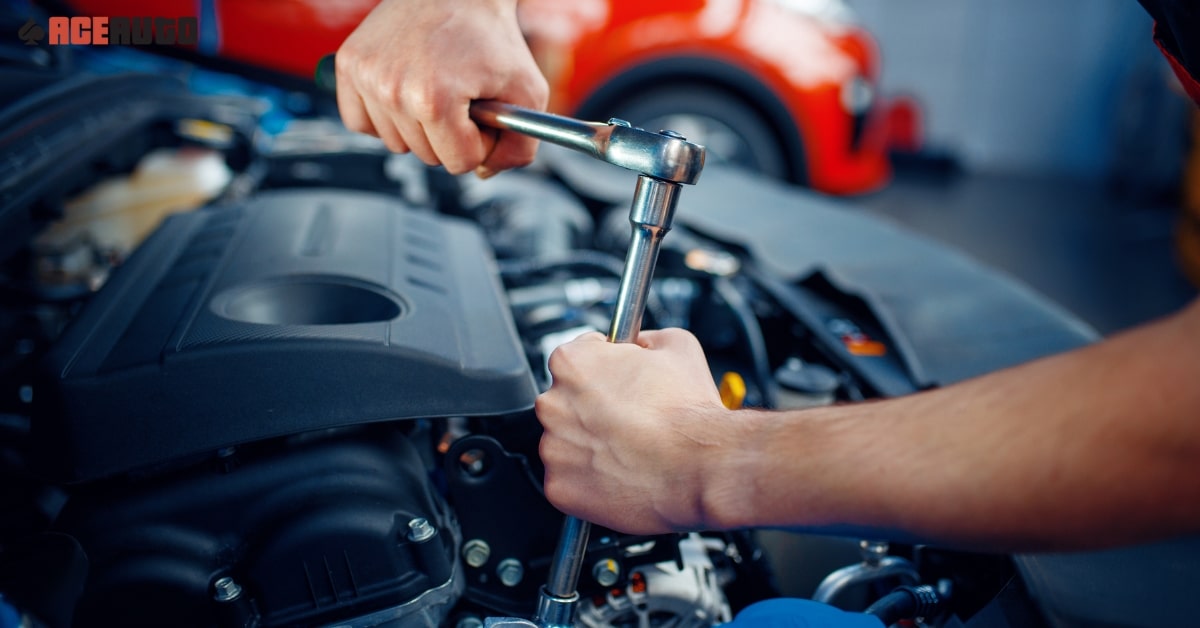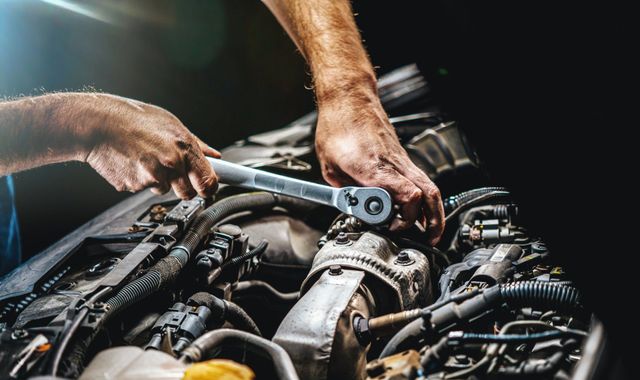All Categories
Featured
The timing belt is a crucial part of your engine, accountable for integrating the movement of numerous engine components, such as the crankshaft and camshaft. While the timing belt may not be something you think about usually, ignoring its upkeep can lead to considerable engine damage and expensive repairs.
What Is a Timing Belt and Just How Does It Function? The timing belt is a rubber or composite material belt that links the crankshaft to the camshaft in an internal combustion engine. The camshaft regulates the opening and closing of the engine's intake and exhaust shutoffs, and it has to be timed completely with the motion of the pistons in the engine. The timing belt makes certain that these components remain in sync, allowing the engine to run efficiently.
If the timing belt comes to be or falls short worn out, the camshaft and crankshaft will certainly no more be integrated, which can cause the engine's shutoffs to strike the pistons. This leads to tragic engine damage and often requires costly repairs and even an engine replacement.
Why Is Timing Belt Substitute Important? Over time, the timing belt can use down as a result of rubbing, warmth, and basic engine wear. While it might appear like a tiny problem, a damaged timing belt can bring about major engine problems. Here's why prompt substitute is essential:
Preventing Engine Damages: As discussed, a busted or slipping timing belt can create the engine's pistons and shutoffs to collide. This causes bent valves, damaged pistons, and in extreme situations, a total engine failing. Replacing the timing belt prior to it breaks can stop this costly damages.
Keeping Engine Efficiency: A damaged timing belt can interrupt the synchronization of the engine components, lowering general engine efficiency. Replacing the belt aids maintain optimal engine function, guaranteeing smooth operation, improved fuel efficiency, and far better efficiency.
Preventing Unforeseen Failure: A damaged timing belt can leave you stranded on the side of the road, triggering a major aggravation. By replacing the timing belt at the recommended periods, you can avoid the risk of an unanticipated failure, especially in the center of a long trip or when you least anticipate it.
![]()
Saving Cash in the future: While timing belt substitute can look like an expenditure you may want to postpone, it's much less costly than the price of repairing or replacing a damaged engine. If the timing belt breaks, the replacement price is relatively economical contrasted to the extensive repair work needed. Proactive upkeep can conserve you thousands of dollars out of commission and protect your automobile's worth.
When Should You Replace the Timing Belt? The timing belt substitute timetable can differ relying on your car's make and version. As a whole, the majority of suppliers suggest replacing the timing belt every 60,000 to 100,000 miles. Nonetheless, it's always best to consult your proprietor's manual or a relied on technician for details referrals for your car.
Signs that your timing belt may require replacement consist of unusual engine sounds such as ticking or whimpering, problem beginning the engine, or a noticeable reduction in engine performance. If you experience any one of these signs, it is very important to have the timing belt evaluated immediately.
![]()
Verdict. Replacing the timing belt at the recommended periods is an essential component of maintaining your engine's health and making sure that your automobile runs smoothly. A busted timing belt can bring about expensive repair services, engine failure, and unexpected malfunctions, which can be prevented with correct maintenance. Constantly comply with the supplier's suggested timing belt replacement schedule and consult an expert technician if you observe any kind of indicators of wear or damage. By keeping this crucial component of your engine in excellent condition, you'll shield your auto from expensive fixings and delight in several more miles of stress-free driving.
What Is a Timing Belt and Just How Does It Function? The timing belt is a rubber or composite material belt that links the crankshaft to the camshaft in an internal combustion engine. The camshaft regulates the opening and closing of the engine's intake and exhaust shutoffs, and it has to be timed completely with the motion of the pistons in the engine. The timing belt makes certain that these components remain in sync, allowing the engine to run efficiently.
If the timing belt comes to be or falls short worn out, the camshaft and crankshaft will certainly no more be integrated, which can cause the engine's shutoffs to strike the pistons. This leads to tragic engine damage and often requires costly repairs and even an engine replacement.
Why Is Timing Belt Substitute Important? Over time, the timing belt can use down as a result of rubbing, warmth, and basic engine wear. While it might appear like a tiny problem, a damaged timing belt can bring about major engine problems. Here's why prompt substitute is essential:
Preventing Engine Damages: As discussed, a busted or slipping timing belt can create the engine's pistons and shutoffs to collide. This causes bent valves, damaged pistons, and in extreme situations, a total engine failing. Replacing the timing belt prior to it breaks can stop this costly damages.
Keeping Engine Efficiency: A damaged timing belt can interrupt the synchronization of the engine components, lowering general engine efficiency. Replacing the belt aids maintain optimal engine function, guaranteeing smooth operation, improved fuel efficiency, and far better efficiency.
Preventing Unforeseen Failure: A damaged timing belt can leave you stranded on the side of the road, triggering a major aggravation. By replacing the timing belt at the recommended periods, you can avoid the risk of an unanticipated failure, especially in the center of a long trip or when you least anticipate it.

Saving Cash in the future: While timing belt substitute can look like an expenditure you may want to postpone, it's much less costly than the price of repairing or replacing a damaged engine. If the timing belt breaks, the replacement price is relatively economical contrasted to the extensive repair work needed. Proactive upkeep can conserve you thousands of dollars out of commission and protect your automobile's worth.
When Should You Replace the Timing Belt? The timing belt substitute timetable can differ relying on your car's make and version. As a whole, the majority of suppliers suggest replacing the timing belt every 60,000 to 100,000 miles. Nonetheless, it's always best to consult your proprietor's manual or a relied on technician for details referrals for your car.
Signs that your timing belt may require replacement consist of unusual engine sounds such as ticking or whimpering, problem beginning the engine, or a noticeable reduction in engine performance. If you experience any one of these signs, it is very important to have the timing belt evaluated immediately.

Verdict. Replacing the timing belt at the recommended periods is an essential component of maintaining your engine's health and making sure that your automobile runs smoothly. A busted timing belt can bring about expensive repair services, engine failure, and unexpected malfunctions, which can be prevented with correct maintenance. Constantly comply with the supplier's suggested timing belt replacement schedule and consult an expert technician if you observe any kind of indicators of wear or damage. By keeping this crucial component of your engine in excellent condition, you'll shield your auto from expensive fixings and delight in several more miles of stress-free driving.
Latest Posts
Professional Residential Roof Solutions You Can Trust Fund
Published May 25, 25
1 min read
Picking the Right Roofing Shade: Influence On Energy Performance
Published May 24, 25
1 min read
Experience WyHy FCU – The Key to Smarter Finances in Wyoming
Published May 22, 25
1 min read